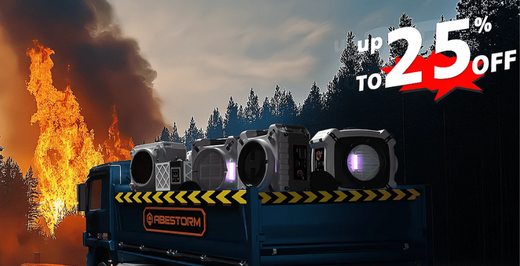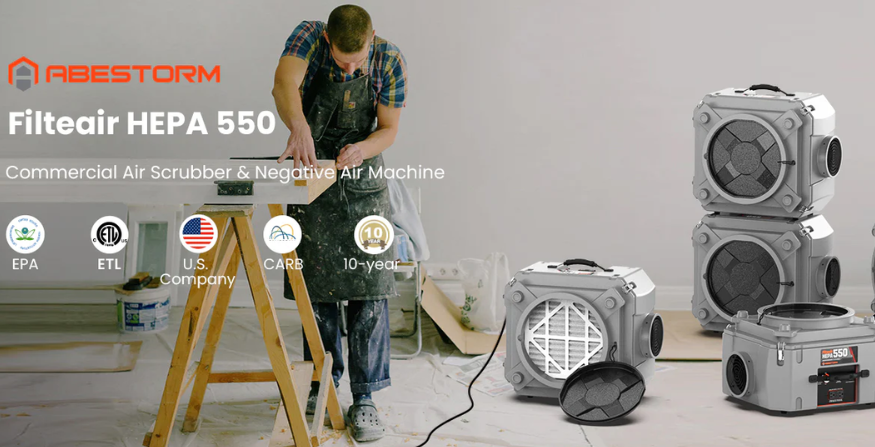Air purifiers and humidifiers enhance indoor air quality though through different means. Purifiers cleanse the air of pollen, dust and smoke via multi-stage filtration. Alternatively, humidifiers emit vapor to replenish dry indoor air's lost moisture. Both aim to better comfort, but each serves a distinct purpose alone. Purifiers remove impurities while needing supplementation for humidity control. Likewise, humidifiers regulate moisture alone without addressing particle removal. Fundamentally, purifiers and humidifiers go hand-in-hand, as neither can singularly fulfill what the other does to fully optimize air for health and wellness.
Using an air purifier instead of a humidifier means the air may be particle-free yet too dry, causing health issues. And a humidifier alone won't cleanse the air of particles. Therefore, to fully optimize indoor air quality, both appliances are recommended as they complement each other's functions rather than replacing one another. Investing in quality air purifier accessories can further enhance any purifier's effectiveness. Replacement filters, for example, are crucial for continuous air cleansing and are recommended as frequently as the manufacturer advises. Maximizing an air purifier's potential requires the right filters and amenities.
What Is An Air Purifier?
Air purifiers cleanse air by using filters to trap pollutants, allergens and other contaminants, preventing their recirculation. Some models supplement standard particulate filtration with UV light or ozone germicidal technologies. UV light is commonly included to decompose gases and inactivate pathogens like germs and bacteria that evade standard filtration. However, UV alone does not guarantee cleaner air—its disinfecting is complemented by filtration trapping particulate matter. Ozone, while capable of microbial elimination, presents human health risks and thus is less widespread than UV technology enhancements. Proper particle filtering remains core to a purifier's effectiveness.
What is a Humidifier?
Humidifiers add moisture to low-humidity environments, an important function especially throughout winter when indoor air dries out. Dry indoor air can lead to issues like ashy skin, shocking static charges, and elevated risks for respiratory illnesses. By releasing mist into these arid indoor atmospheres, humidifiers counteract multiple problems caused by limited moisture levels.
The added vapor raises ambient humidity levels to a more comfortable range where skin and lungs experience less irritation and vulnerability. Whether needed seasonally or year-round based on climate and household characteristics, humidifiers effectively alleviate adverse health and comfort impacts of an overly arid indoor environment by hydrating the surroundings with supplemental water vapor.

Air Purifier vs Humidifier: Key Differences
With a foundation on what air purifiers and humidifiers are, let's examine some key variances between the two - specifically how they diverge in their functions of purifying air versus regulating moisture.
Purpose: As mentioned previously, air purifiers are intended to clean indoor air by removing multiple pollutants such as dust, smoke and more. On the other hand, humidifiers are intended to inject moisture into air, since their function is to regulate humidity levels rather than purge impurities.
Maintenance: Air purifiers require less frequent maintenance, typically a filter change every 6 to 12 months. Humidifiers necessitate more regular upkeep like replenishing water levels along with consistent cleaning to prevent bacteria and mold growth from added moisture in the air over time. Prompt servicing is important for the optimal functionality of both.
Cost: Pricing for air purifiers and humidifiers can fluctuate broadly based on each appliance's size, design and included capabilities. The cost is impacted significantly by these choosing factors, with smaller and more simplistic models going for less and larger sizes featuring more advanced technology commanding higher rates. Customers must weigh device specs against budget.
Coverage: The coverage area differs between products, with air purifiers typically capable of larger ranges than humidifiers. Choosing the right size appliance relies on evaluating the intended room dimensions to ensure full purification or humidification within the targeted space based on the device's listed effectiveness range.
How To Choose The Right Air Purifier Or Humidifier For Your Workplace?
Office size, employee count and pollution sources dictate effective air purification. Small spaces require portable units while large offices demand central systems. Identifying key contaminants like printer emissions, airborne chemicals and particulate influx assists appliance selection. Local humidity assessment reveals whether drying indoor air merits a humidifier's mitigation. Workplace health depends on properly tailored solutions considering location characteristics and employee needs for clean, comfortable breathing environments.
Consider your budget and how often maintenance tasks like filter replacements are feasible. Seek ENERGY STAR-certified devices that are both effective and efficient. Get input from employees on placement preferences. Look for devices with smart features like automatic sensors and smartphone controls for convenience. Testing multiple options and reading professional and user reviews can help identify the best match to improve indoor air quality and breathing comfort for maximizing workforce health and productivity.
What Is Better For Allergies Humidifier Or An Air Purifier?
For those suffering from seasonal allergies, both humidifiers and air purifiers can provide some relief. However, one is generally better suited as the primary remedy. Humidifiers add moisture to the air, but do nothing to remove actual allergen particles like pollen, dust mites, and pet dander that cause allergic reactions. While moisture can help irritate nasal passages, it does not stop the body's exposure to triggers.
Air purifiers, on the other hand, are specifically designed to filter out these types of allergens through multipurpose filters. By removing allergens from circulating indoor air, air purifiers are generally more effective at preventing allergic symptoms caused by airborne irritants. A humidifier may offer some comfort, but an air purifier is typically the smarter choice for true allergy relief by mitigating the root causes of reaction-causing particles.

Air Purifier Vs Humidifier: Which One Is Right For You?
When choosing between an air purifier or humidifier, it's significant to consider individual household needs and the environment. Those suffering from allergies or breathing issues like asthma in a location with high pollen counts or pet dander may find better ease from an air purifier that can filter such catalysts. Conversely, dry indoor heating in cold climates can cause static shocks, and itchy skin and noses, so a humidifier is a suitable choice for these conditions.
While both options improve aspects of indoor air quality, they each address different issues - humidifiers regulate moisture but don't remove airborne irritants, while purifiers cleanse the atmosphere but cannot directly impact humidity levels. Using a combination of the two appliances may work best for overall wellness, particularly in climates with both pollution and low humidity. Carefully assessing climate, health, comfort preferences and property specifics helps determine the right single solution or joint system.
Conclusion
While air purifiers and humidifiers both aim to improve indoor environmental quality, they accomplish this through different core functions that are not mutually substitutable. An air purifier filters out particulate matter but cannot regulate moisture levels on its own. Likewise, a humidifier increases air humidity but does nothing to remove pollutants. For optimal wellness, especially for homeowners in dry regions or those sensitive to allergens and pollution, it is best to utilize both appliances.
They complement one another by mitigating separate issues - purifiers cleanse airborne irritants as humidifiers maintain comfortable humidity. Only a comprehensive approach addressing both filtration and moisture management can fully optimize air quality. Neither device can replace the other, as negative health effects may still occur despite particle-free but imbalanced air, or moisture-optimized but impure air. An integrated system delivers the cleanest indoor surroundings.









Shop For Dehumidifier